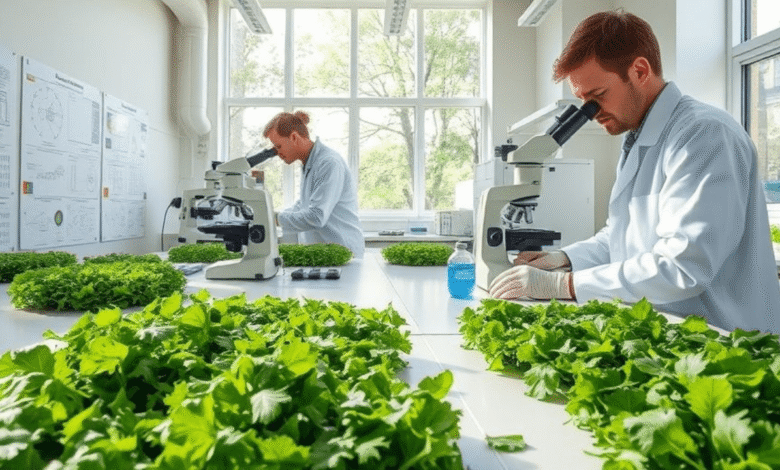Arugula Researcher at Cambridge – A Deep Dive into Rocket Science and Plant Studies

The arugula researcher at Cambridge may seem unusual at first glance. Arugula, also known as Eruca sativa or rocket in the UK, is a verdant green vegetable prized for its peppery taste and nutritional profile. Cambridge, home to one of the world’s leading universities, is a hub for advanced plant sciences and agricultural research. Together, the arugula researcher at Cambridge can refer to two major interpretations:
- A playful nod to crossword puzzles, where “arugula” translates to “rocket” and the answer becomes “rocket scientist.”
- Real plant science studies conducted by researchers affiliated with Cambridge and related institutions, focusing on the genetics, diversity, and agricultural potential of arugula.
This article explores both perspectives, making the phrase both fascinating for puzzle enthusiasts and highly relevant for those interested in sustainable agriculture, crop science, and nutrition.
The Crossword Connection – Why Arugula Researcher at Cambridge Means Rocket Scientist
One of the most frequent appearances of the arugula researcher at Cambridge is in crossword puzzle communities. In British English, arugula is commonly referred to as “rocket.” Therefore, a researcher associated with “rocket” is humorously a rocket scientist.
Crossword enthusiasts across publications such as the LA Times and online puzzle forums often encounter this clue. It has become a clever linguistic play, linking an everyday salad green with one of the most prestigious scientific professions. This connection has led to increased online searches for arugula researcher at Cambridge as puzzle solvers hunt for the correct answer.
However, beyond wordplay, Cambridge University genuinely hosts cutting-edge plant research, including work on leafy greens like arugula.
Cambridge’s Legacy in Plant Sciences
The University of Cambridge is globally renowned for its Department of Plant Sciences, part of the School of Biological Sciences. With a history of groundbreaking discoveries in genetics, botany, and sustainable agriculture, Cambridge researchers have consistently contributed to the improvement of global food systems.
Some of the university’s focus areas relevant to arugula include:
- Crop genetics and breeding – identifying traits for resilience, yield, and nutritional value.
- Plant responses to climate stress – studying drought tolerance, temperature resilience, and pest resistance.
- Nutritional composition – evaluating bioactive compounds, antioxidants, and flavor-enhancing properties in leafy greens.
Arugula (Eruca sativa), as a member of the Brassicaceae family (which also includes broccoli, kale, and mustard greens), is a valuable subject of study due to its nutritional content and adaptability.
Why Arugula Matters in Research
Arugula is not just a trendy salad ingredient. It has unique properties that make it scientifically enjoyable:
- Nutritional Benefits
- Arugula is rich in vitamins A, C, and K, as well as calcium, potassium, and folate. It contains glucosinolates, sulfur-containing compounds linked to cancer-preventive properties.
- Agronomic Potential
- It grows quickly, adapts to various climates, and can be cultivated in smaller spaces, making it an attractive option for urban cultivation and food security strategies.
- Flavor and Consumer Demand
- Its peppery taste distinguishes it from milder leafy greens. With growing interest in diverse diets, demand for arugula has steadily increased across Europe and North America.
These factors explain why an arugula researcher at Cambridge or elsewhere would dedicate resources to studying this crop.
Cambridge Research on Arugula and Related Species
While there is no single public figure universally known as “the arugula researcher at Cambridge,” several scientific publications connected to Cambridge Core and related institutions highlight ongoing research into arugula and its relatives.
Genetic Diversity Studies
Cambridge Core journals have published work on the phenotypic and genetic diversity of Eruca sativa and related species. These studies evaluate traits such as leaf morphology, seed yield, and stress resistance. Such findings guide plant breeders in developing more resilient arugula varieties.
Climate Adaptation Research
With global warming threatening crop yields, researchers have studied how arugula responds to drought stress, salinity, and heat exposure. Enhancing the resilience of leafy greens is crucial for assuring food security in regions vulnerable to climate change.
Nutritional and Phytochemical Analysis
Arugula’s bioactive compounds are another area of interest. Research investigates antioxidant activity, glucosinolate content, and their potential role in disease prevention. Cambridge-affiliated journals often feature comparative studies of leafy greens, including arugula, spinach, and kale.
Molecular and Genomic Insights
Advancements in plant genomics have allowed researchers to identify the genes responsible for arugula’s unique traits, from flavor compounds to stress responses. Such work opens pathways for genetic improvement while maintaining consumer appeal.
Arugula Beyond Cambridge – A Global Research Perspective
To fully appreciate the significance of the arugula researcher at Cambridge, it’s helpful to look at the global landscape.
- Italy has been a hub for arugula breeding, with extensive research on Eruca sativa varieties.
- The Middle East and North Africa (MENA) region has contributed studies on arugula’s resilience to arid conditions, reflecting its long history as a cultivated crop.
- The United States has a growing interest in arugula as part of organic and health-conscious diets, leading to field trials on sustainable production methods.
Cambridge researchers collaborate internationally, sharing data and insights to enhance arugula cultivation worldwide.
Practical Applications of Arugula Research at Cambridge
The work of an arugula researcher at Cambridge has real-world applications that extend beyond academia:
- Food Security – Developing resilient arugula varieties that can thrive in challenging climates.
- Nutrition – Enhancing the concentration of beneficial compounds to improve public health outcomes.
- Sustainable Agriculture – Promoting leafy greens that require fewer inputs and adapt well to urban farming systems.
- Economic Value – Supporting farmers and agribusiness by introducing improved cultivars with high consumer demand.
- Education – Inspiring students and young scientists at Cambridge and beyond to explore plant sciences.
The Future of Arugula Research at Cambridge
Looking ahead, the role of Cambridge researchers in arugula studies is expected to grow as global priorities shift toward sustainable food systems. Future directions may include:
- Gene editing (CRISPR technology) to fine-tune desirable traits in arugula.
- Vertical farming and controlled-environment agriculture research to maximize yield.
- Cross-disciplinary studies linking plant biology with human nutrition and culinary science.
- Climate resilience projects to safeguard arugula production in the face of shifting weather patterns.
By bridging plant genetics, agronomy, and consumer health, Cambridge continues to make a meaningful impact on the future of food.
Conclusion – The Meaning of Arugula Researcher at Cambridge
The arugula researcher at Cambridgen is fascinating because it lives in two worlds:
- In puzzles, it points to the witty solution of a rocket scientist.
- In reality, it refers to a growing body of plant research, much of which is connected to Cambridge’s rich academic ecosystem.
Arugula is more than a salad leaf—it is a symbol of nutrition, sustainability, and scientific curiosity. Whether you’re a crossword fan chuckling over a clue, a food lover curious about healthy greens, or a student exploring plant science, the phrase connects you to an intriguing story of discovery.




